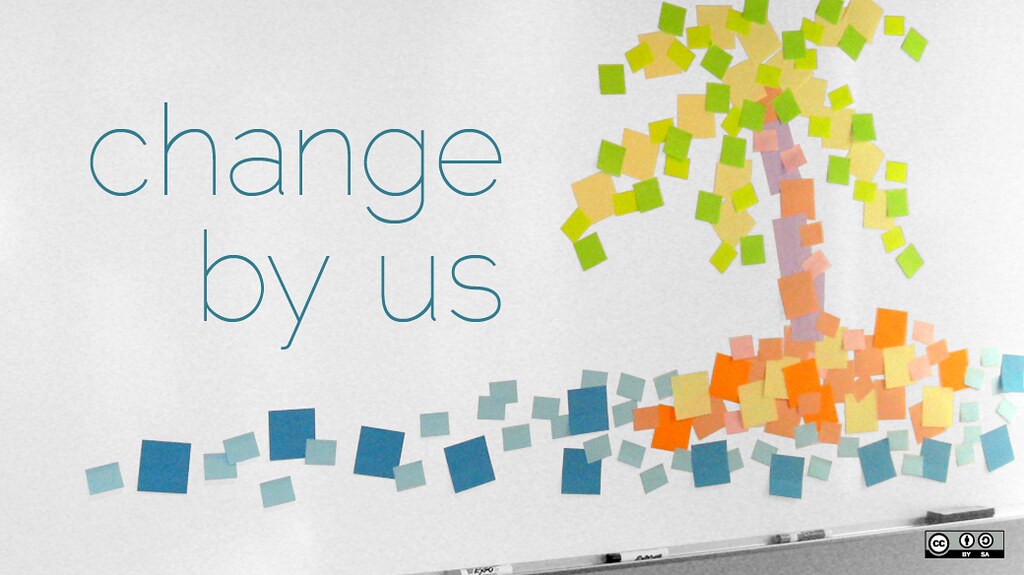(Written during the 6 week Eisenhower Fellowship in the U.S. in 2012)
(Grand Canyon)
‘Education is what remains after one has forgotten, what one has learnt’
The observations are contextual – what happens here[1], that can happen more in India. The better things. Though, it may be sensible not to ignore the note of caution struck by others.
When we look at the facilitative conditions/environment for facilitative leadership, a big challenge (with no easy answers) back home is numbers. Thus everything- including facilitation- that makes sense with smaller numbers gets distorted when the numbers increase ten times. A demographic expert may talk about the ‘dividend’ that can be had from India’s young population. The lack of this freedom in China may also be rightly deplored as ‘inhuman’. The ‘emergency’ in India, where the State tried to address the issue with some coercion also failed. What is the solution? Is the issue need to be addressed? May be, education, economic growth and improved health (reduced child mortality) shall have an impact. The issue is very sensitive with multiple dimensions including religion and human rights.
The investment in staff to create a shared vision is a leadership quality (‘human capital developer’[2]), which can be ignored at the organisations’ own peril.
There are some ‘systemic[3]’ factors observed here, however, which may be interesting. The first one is ‘catching them young’. The education system which encourages practical learning and discourages rote learning is important in developing a child’s psyche of conceptual learning, confidence and willingness to offer views. In Portland, OR, the school children of 6th standard are sent for a week to appreciate environment, so that he can be sensitive to it. The District Attorney of San Francisco is meeting the school children to discuss and explain crime, vulnerability, safety to them. On the entire trek route, not a single person leaves trash. When has all this been inculcated? At the time when minds are impressionable. When they grow up like this with abilities/skills/values beyond academics, the ‘system’ provides most of them a ‘niche’ where they can play a role. Every skill/human resource, every space has a value, which has stretched itself to occupy that niche. It may be the all-in-one coffee person at Starbucks; or a young lady in her 70s driving the shuttle in Grand Canyon; or the efficient utilisation of space at the airports, with the arrival and departure traffic being accommodated in the same space and a commercial shop, wherever possible; or the intern culture who learn on the job.
Another fantastic thing about this place is its flexibility. As my friend put it, ‘If someone really wants to do something here, anything, he can do it….’ Thus people move in and out of the government (bringing the advantage of best practices in the private sector to the government and taking time off to make money/improve skills. You can do a degree here in variable time, depending on the subjects you want to study, and whether you want to do something else in between as well. Although there are rules, they are for people, and people are not for rules. Thus outcome is important than procedures. The flexibility extends to networking with other organisations such as PPP projects or partnership with philanthropic organisations. There is philanthropy. A group of young fellows we witnessed today were maintaining the hiking track down the Grand Canyon, picking up stones on the way and placing them on sides. It is hard manual work. And they do it voluntarily in different National Parks. They might be doing it because they like it. And we all know what difference it makes, when a person does something what he likes.
Democracy is democracy across. But what strikes is the direct executive power with elected people like Mayors or District Attorneys. At the local levels, where the real implementation matters it is very interesting to find the people who are actually responsible to the electorate deliver services directly. Is this a better system than the executive powers with a professional bureaucrat?
And then there is a ‘systemic’ effort to specifically focus all ‘other’ areas that may impinge elsewhere. Thus IT, innovations are welcome and encouraged. The oil is much cheaper.
It is a positive virtuous circle.
Something seems to have gone awry as well. The number of mentally challenged/homeless people on streets (especially in Portland, because it is a ‘welcoming’ city; but also elsewhere) is striking. The ‘strip bars’ are common in most cities. What systemic factors may have gone wrong?
Success is primarily defined by profit. But there are inspirational stories as well, which value the ‘smiles’ of their customers/citizens; or the socio-environmental benefit to the society.
There is one more striking thing that may impinge on the facilitative decision making process. This is evidence-based planning and decision making. The DA of San Francisco is able to take the restorative justice approach because of the evidence that incarceration does not help. Through the Looking Glass advocate early intervention for services to parents of differently abled children because they have researched and drawn that conclusion over the years. Many organisations use this as a tool, and if done well, research can itself be a facilitative process towards engagement.
What things are affecting the change process? One thing that is very obvious is the highly ‘competitive’ environment, in which every individual/organisation has to prove himself/themselves. This itself is a fertile ground for ‘change’.
[1] In the USA
[2] The Leadership Code
[3] Systems thinking

